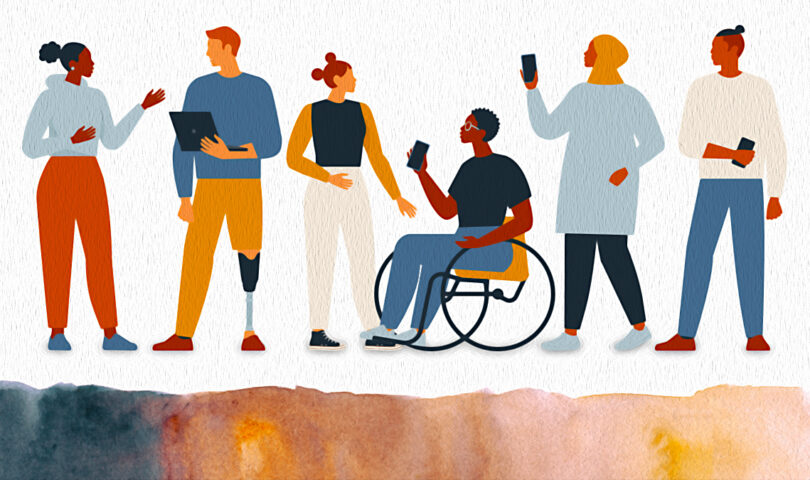The College is expanding on its existing commitment to cultivate Indigenous Cultural Competency to promote a broader understanding of equity, diversity and inclusion (EDI) and how it can help support an inclusive and equitable health system.
Recognizing its role as the provincial pharmacy regulator and the role that pharmacy professionals can play in addressing healthcare disparities, the College is well positioned to work collaboratively with pharmacy, regulatory and health system partners to help drive positive change in collaboration with the profession.
Pharmacy Connection is sharing three reasons why equity, diversity and inclusion (EDI) is important in pharmacy:
Ongoing learning fosters enhanced pharmacy care
Ongoing learning is an important way to support pharmacy professionals’ EDI journey and address potential health inequities for patients.
To incorporate EDI as part of your pharmacy practice, it’s important to understand what EDI means and how it can enhance the delivery of safe, quality pharmacy care.
Equity is about fairness as well as the provision of practices and policies that help in acknowledging imbalances among people. Identifying inherent biases and working to overcome them will create an environment where all patients can experience the same level of care.
Diversity acknowledges and celebrates individual differences. These differences can be visible dimensions such as race/ethnicity, skin colour, physical abilities and gender, or invisible dimensions such as religion, political beliefs, ideologies and socio-economic status. In providing pharmacy care, all patients must be treated fairly and equitably regardless of these differences.
Inclusion is creating an environment in which everyone feels valued and equally respected. It requires provision of equal access to resources and opportunities to create a space where everyone feels accepted.
Pharmacy professionals are encouraged to review available EDI resources on the College’s website to support their ongoing learning.
Supports existing obligations of pharmacy professionals
A commitment to EDI further supports existing expectations under the Code of Ethics in treating patients fairly and equitably. The Code of Ethics outlines the social contract and core ethical principles of healthcare that must guide the everyday practice of pharmacists and pharmacy technicians.
As outlined in the Code of Ethics, all persons are worthy of respect, compassion and consideration, which is demonstrated when there is respect for patients’ vulnerability, autonomy, values, beliefs and right to be self-governing decision makers in their own healthcare.
Respect for persons/justice—one of the foundational principles in the Code of Ethics—requires that all patients are treated fairly and equitably. Key ethical standards, among others, require pharmacy professionals to ensure their views about a patient’s religious beliefs and other factors such as race, gender, identity, sexual orientation, age and disability do not prejudice their opinion of the patient and affect the quality of service that they provide to the patient.
Pharmacy professionals are to provide fair and equitable access to pharmacy services and deliver consistent quality of care to all patients regardless of socio-economic status, culture or any other related factor that might unfairly bias patient care.
Contributes towards a healthier Ontario
Systemic discrimination and racism have resulted in health disparities amongst different groups in the Ontario healthcare system.
Nearly 15 million people live and work in Ontario, all of whom will likely access pharmacy care at some point in their life. Supporting the diverse needs of Ontarians through safe, quality, patient-centered and equitable pharmacy care is vital in supporting healthy communities throughout the province.
The College is sharing resources that have been curated from a variety of sources and that explore EDI through a healthcare lens. Registrants are encouraged to take the time to review the resources that are most relevant to their interest and practice. If you know of any EDI resources that the College should consider including, please email communications@ocpinfo.com.













